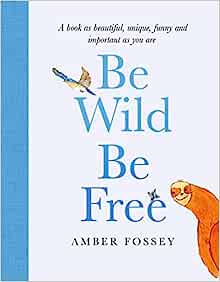There are so many blogging platforms; this one uses WordPress but there are many really good free blogging platforms out there; I will say that WordPress is the choice of many professional bloggers but it doesn’t suit everyone.
You will need a hosting account if you want to have access to the best tools for your blog or website, particularly if you want to monetize; I use Go Daddy WordPress Hosting, but again there are many out there of equal quality. When you’re just starting out you want to find the easiest hosting account for you so that you don’t spend too much precious time trying to figure out the process.
Every web host has a help section and usually a section of frequently asked questions; these are invaluable in helping set up your account. Generally, if you are experiencing a problem in setting up your site, then someone else has experienced that problem too.
One of the best resources when you are setting up a blog is the ProBlogger website. There is a vast amount of information on setting up, monetizing, platforms and SEO (Search Engine Optimisation), and also a very active community that is excellent for reference.
Pat Flynn of Smart Passive Income is just the hero of many online entrepreneurs and he has vast resources on his website to help get you started. If you are struggling to set up your blog, check out the video below and Pat will talk you through each stage and make the whole process very simple.
Aside from using a blog to write about your particular interest, you can use a blog as an author platform. There are differing opinions about using a blog for this; some writers believe it doesn’t really contribute to them financially, and Amazon does the job as it gives writers their own author page. My opinion is this: if you have a little bit of time to put together a blog which advertises all your writing products in one place, why not do it.
In the crowded internet, you need to have a presence, and a writer’s blog is another place where you can be found. You don’t have to even update it too frequently; once a week is sufficient. Blogging has become something of an art form over the last few years, and now it’s generally accepted that anyone who is anyone has their own blog. Blogs have become a way to publicise your knowledge, interests or profession; and for the budding author, your own blog can be used to build a fan base, publicise your novel and link to payment options so your audience can actually buy your book. If you have a self-published book that can be produced to order, or an eBook, you can link to it from your blog.
But what can you write about on your blog that will keep your followers amused and happy to return to your pages week after week? It’s hard enough to find the motivation to carry on writing in the face of publishing rejection, so to find the motivation to write a blog explaining who you are and what you do is a tough ask. It may seem pointless but even the most banal bloggers can achieve follower numbers in the hundreds, so you can assume that if you write a half-decent blog on the subject you are passionate about and which you can produce great content for, then followers will follow. It is very difficult to attract traffic that will actually convert; that basically means that you want people to follow through to whatever you are trying to drive them to, whether that be GoogleAds, affiliate links or products like your eBooks; you need to be aware it could take a year before you are getting the traffic you want.
Affiliate marketing is a good way to monetise your blog or website, but it pays to do the research thoroughly. Amazon runs their own affiliate program, Amazon Associates, and there are companies like CJ Affiliate by Conversant (Commission Junction) which allow you to apply to join company affiliate programs. Some bloggers actually write their content based on affiliate links; check out A Penny Shaved which is a website written specifically to take advantage of affiliate marketing on a niche site.
The key to a successful blog is subject matter. Put simply, you need to write what people want to read; it is no good writing about toad migration if only six people in the country are interested in the subject; but if you write about your successful and foolproof method of getting your toddler to sleep for sixteen hours a night, you will have hundreds of tired parents hanging off your every sentence; as a new author, if you write about a new method of producing a 100 page book in 10 days, thousands of potential ebook writers will find you. It’s simple statistics; write for your audience and they will come; write for yourself and you will write alone.
One of my favourite blogs, and this is a purely personal example, is StevePavlina.com and his blog is an absolute prime example of blogging success; it’s definitely one worth checking out. His subject matter encompasses everything you need to know about self help, writing, motivation and even how to cook brown rice. The reason his blog is such a success? Subject matter. There are many thousands of successful blogs on the web and you could spend precious time researching them all, but my suggestion would be to put that time into creating your own blog and see where it takes you.
Blogging to earn a passive income is great if you can make it work and that means really finding your niche. If you’re a busy stay-at-home parent, take five minutes to write a daily diary of tips and funny moments; if you are an expert on restoring old tractors, take photos of each stage and write a little explanation; if you are an expert in making dress suits for Chihuahuas, take pictures of your creations and advertise the fact that you are available to make bespoke outfits for dogs. You will be amazed how many people are looking for advice from those who are already in the field, and from your blog you can link to another site; for example, you can link to the ebay shop where you sell your tractor parts.
The biggest drawback to blogging is the time it takes. It can seem pointless to spend an hour of your precious writing time each day to write what essentially seems like trivia, but blogs have a tendency to get off to a slow start. As with self-publishing, it is vital to do as much self-advertising as possible. Social networking is a good way to spread the word; sites like Facebook and Twitter are invaluable to the self-advertiser as they offer a huge audience; you just have to fight with all the other self-advertisers who have realised the same thing, which is why you have to spend the time making your blog content superior to anything else out there; and once again, make it all about the subject and produce excellent content.



